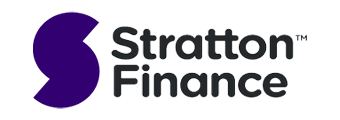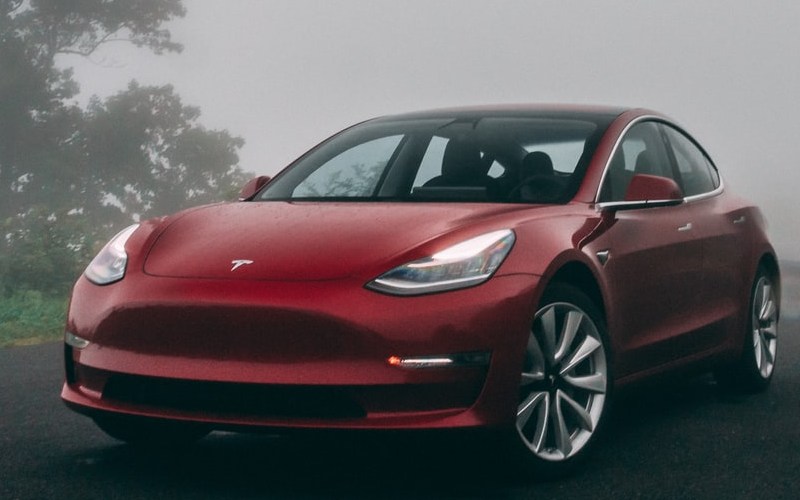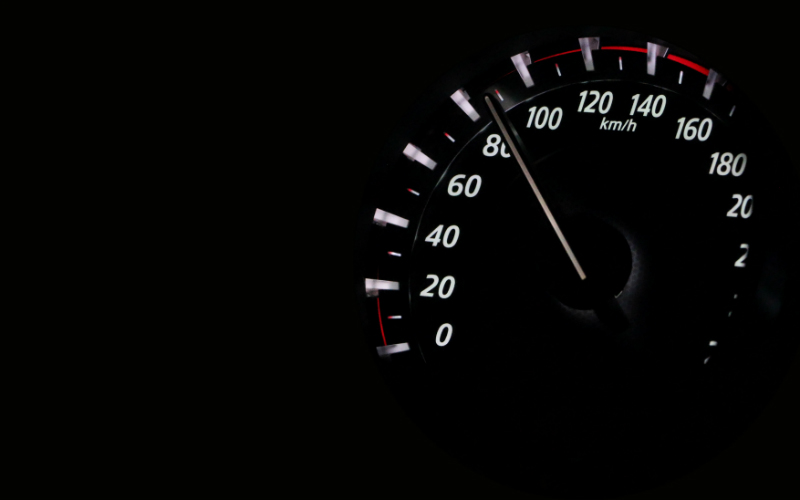Australians have a huge appetite for new cars, reflected in all-time sales records being broken with almost every passing year, and some familiar models staying atop the list.
According to the latest ABS data, there were 21,168,462 registered vehicles on Australian roads at the end of 2023, meaning there are more registered vehicles than current licence holders- a testament to the Aussie love affair with all things on four wheels.
Throughout 2023, vehicle sales continued to climb, with a record-setting 1.2 million vehicles delivered, eclipsing the previous year’s record tally by a steep 12.5 per cent.
The current sales trajectory is pointing to yet another sales milestone, so let’s take a closer look at the sales charts at the halfway point of 2024 to find out Australia’s most popular car brand.
Advertisement
In the market for a new car? The table below features car loans with some of the lowest interest rates on the market.
| Lender | Car Loan | Interest Rate | Comparison Rate* | Monthly Repayment | Interest Type | Vehicle Type | Maximum Vehicle Age | Ongoing Fee | Upfront Fee | Total Repayment | Early Repayment | Instant Approval | Online Application | Tags | Row Tags | Features | Link | Compare | Promoted Product | Disclosure |
|---|---|---|---|---|---|---|---|---|---|---|---|---|---|---|---|---|---|---|---|---|
5.99% p.a. | 7.12% p.a. | $580 | Variable | New | No Max | $8 | $400 | $34,791 |
| Promoted | Disclosure | |||||||||
6.52% p.a. | 6.95% p.a. | $587 | Fixed | New, Used | No Max | $0 | $350 | $35,236 |
| Promoted | Disclosure | |||||||||
6.57% p.a. | 7.19% p.a. | $588 | Fixed | New | No Max | $0 | $250 | $35,278 |
| Promoted | Disclosure |
The 10 Most Popular Car Brands in 2024
With the help of the latest data from the Federal Chambers of Automotive Industries (FCAI), let’s take a look at the best-selling car brands so far in 2024.
While the race is far from over, looking at new vehicle sales at the halfway mark of the year gives us a clear indication as to consumer trends on preferred manufacturers and best-selling models.
1. Toyota
-
June 2024 Sales: 20,903
-
Total H1 2024 Sales: 121,301
-
Best-Selling Model: HiLux
Toyota has continued its dominant run of vehicle sales, delivering more than double that of its nearest rival and cementing itself as Australia’s favourite car brand.
The Japanese giant offers a competitive lineup that competes in every major segment, with the Yaris and Corolla both picking up a cross-over SUV variant, and the RAV4 continuing to serve as Australia’s favourite family SUV.
There’s also the seven-seat Kluger SUV, the adventurous LandCruiser Prado and 300 Series, a growing range of hybrid variants and the almighty HiLux workhorse that remains one of Australia’s best-selling vehicles.
2. Ford
-
June 2024 Sales: 9,493
-
Total H1 2024 Sales: 49,622
-
Best-Selling Model: Ranger
Ford looks to be taking home yet another silver medal in 2024, with Detroit’s finest sitting as Australia’s second most popular automotive brand.
Looking closer, Ford has been locked in a fierce battle with Toyota for Australia’s best-selling model, with the Ford Ranger edging out the HiLux in the year-to-date sales chart.
Ford’s sales are buoyed by the adventure-ready Everest SUV and the commercial sector with its Transit and Transit Custom cargo vans and performance vehicles like the Mustang and battery-electric Mustang Mach-E.
3. Mazda
-
June Sales: 9,483
-
Total H1 2024 Sales: 48,547
-
Best-Selling Model: CX-5
Mazda rounds out the podium finishers so far in 2024, with its growing SUV range continuing to appeal to Australian buyers.
While Mazda has the iconic MX-5 sports car in its ranks, the majority of legwork in terms of sales is taken care of by its family-friendly SUVs which are offered at a wide variety of price points.
The CX-3 sits as one of the best-selling small and affordable SUVs while the CX-5 is a go-to option in the midsize SUV segment, with many, many more SUVs on offer for families big and small within the Mazda stables.
4. Kia
-
June 2024 Sales: 8,225
-
Total H1 2024 Sales: 41,300
-
Best-Selling Model: Cerato
Kia’s undeniable value-for-money proposition with many of its vehicles has landed it at number four of the best-selling car brands in Australia so far in 2024.
With a growing range of hybrid variants for its family-friendly Sportage and Sorento SUVs and the ever-popular, eight-seat Carnival wagon, Kia’s wide range of affordable and family-friendly vehicles, combined with its long warranty coverage makes it a go-to marque for Aussies.
5. Mitsubishi
-
June 2024 Sales: 7,723
-
Total H1 2024 Sales: 39,634
-
Best-Selling Model: Outlander
Mitsubishi sits in the middle of the pack for new car sales, with the heavy lifting taken care of by its Outlander midsize SUV.
The company has also seen buyers continue to flock to the Triton, more so after a next-generation Triton touched down in Australia earlier this year that remains one of the best-selling utes.
6. Hyundai
-
June 2024 Sales: 6,552
-
Total H1 2024 Sales: 36,082
-
Best-Selling Model: Kona
Sixth place goes to Hyundai, a company that has almost every segment covered, from small SUVs like the Venue and Kona to its large seven-seater Santa Fe and Palisade platforms.
Hyundai has also added several hybrid variants of its most popular models, as well as expanded its share of battery-electric vehicles like the IONIQ 5, positioning the company nicely as the New Vehicle Efficiency Standard comes into effect from 1 January, 2025.
7. Isuzu Ute
-
June 2024 Sales: 4,445
-
Total H1 2024 Sales: 25,903
-
Best-Selling Model: D-MAX
Isuzu has been capitalising on Australia’s love affair with rugged workhorses like the D-MAX and the adventurous MU-X family SUV, with the company sitting as the seventh best-selling marque with just two vehicles in the ranks.
With no signs of slowing down, the D-MAX is the third best-selling 4x4 ute in Australia, while the MU-X remains a go-to option for those looking for towing power and off-road confidence.
8. Nissan
-
June 2024 Sales: 4,293
-
Total H1 2024 Sales: 24,916
-
Best-Selling Model: X-Trail
At number eight, Nissan enjoyed a massive comeback in 2024 after updating some of its most popular models like the X-Trail, Pathfinder while introducing hardcore variants of the almighty Patrol 4x4.
Nissan’s sales are also propped up by the Qashqai compact SUV, the ever-trusty Navara ute and the company’s best-selling X-Trail midsize SUV.
9. MG
-
June 2024 Sales: 24,593
-
Total H1 2024 Sales: 4,224
-
Best-Selling Model: ZS
MG is still in the top ten charts, though momentum from China’s underdog has begun to wind down after its quick ascent from obscurity.
While its pace may be slowing, strong and consistent sales of the ZS compact SUV, HS midsize SUV, handful of plug-in hybrid variants and a range of affordable MG4 electric vehicles means MG is more competitive than ever in 2024.
10. Tesla
-
June 2024 Sales: 4,683
-
Total H1 2024 Sales: 23,116
-
Best-Selling Model: Model Y
Tesla has managed to become one of the best-selling manufacturers here in Australia thanks to its head-start on the EV competition and high production rates that have helped to keep wait lists short.
Tesla’s current best-seller, the Model Y was Australia’s fifth best-selling vehicle in Australia in June, while still ranking in the top ten of overall YTD sales in 2024.
Most Popular Car Models in 2024
Now we’ve got a clear picture of the best-selling manufacturers, let’s look even closer at the most popular vehicle models sold up until the halfway point of 2024.
| Rank | Car Model | YTD Sales 2024 |
| 1 | Ford Ranger | 33,531 |
| 2 | Toyota HiLux | 28,515 |
| 3 | Toyota RAV4 | 25,405 |
| 4 | Isuzu D-MAX | 15,820 |
| 5 | Mitsubishi Outlander | 14,443 |
| 6 | Toyota Corolla | 13,179 |
| 7 | Tesla Model Y | 12,516 |
| 8 | Mazda CX-5 | 11,920 |
| 9 | MG ZS | 11,809 |
| 10 | Ford Everest | 11,276 |
As you can see, Australians love a work-ready ute and that’s not going to change any time soon, with three of the five best-selling models sitting in the light commercial vehicle segment.
There’s also Toyota’s domination across multiple segments, with the company’s Hi-Lux ute, RAV4 midsize SUV and Corolla small car remaining a favourite for a variety of buyers.
The Corolla is also the only small, non-SUV vehicle in a list dominated by utes and SUVs.
Vehicle Sales by Fuel Type, H1 2024
With more hybrid, plug-in hybrid and electric vehicles hitting the road, the growing share of fuel-efficient and battery-electric vehicles is very much reflected in overall sales in the first half of 2024.
-
Petrol: 272,756 (-7.3%)
-
Diesel: 193,859 (+10.2%)
-
Hybrid: 81,613 (+113.3%)
-
Electric: 50,219 (+16.5%)
-
PHEV: 8,223 (+129.6%)
Some of the major takeaways here include petrol vehicles losing a considerable share of the market - 7.3 per cent - while diesel sales continue to climb by upward of 10.2 per cent.
Interestingly, sales of plug-in hybrids have jumped by a massive 129.6 per cent, though they remain a relatively niche segment of the automotive market, with 8,223 vehicles delivered to H1 2024.
Sales of conventional hybrids have also jumped 113% and represent a far bigger slice of the pie, with 81,613 hybrid vehicles sold in H1, 2024, outpacing that of the battery-electric segment which also reported strong growth figures of 16.5 per cent.
Why are These Car Brands so Popular?
While there’s no single answer to the question of why these brands are so popular, we can narrow it down to a few key areas.
-
Brand Recognition - this is often linked to things like the capability of a 4x4 or ute, as well as the quality of raw materials and their reliability over time, which impacts both resale values and maintenance.
-
Reliability - while sales volumes aren’t representative of reliability, it’s hard to deny something like Toyota’s reputation and ignore the correlation with its delivery totals.
-
Affordability - most of these manufacturers produce vehicles catering for the masses.
-
Fuel Efficiency - the majority of these manufacturers have rolled out hybrid versions of their best-selling vehicles, especially Toyota which has turned to hybrid-only versions of some vehicles.
-
Warranty & Running Costs - buyers are still flocking to brands offering a warranty period longer than the typical five years and appreciate things like capped-price servicing packages.
- ANCAP Safety Ratings & Equipment - safety is a major consideration for buyers, with five-star ANCAP ratings and active safety equipment lists remaining one of the most important determining factors in a new car purchase, particularly for families.
How Do Australians Buy Their Cars?
It should come as no surprise that buyers are leveraging technology more than ever.
According to Ipsos data from CarSales, two-thirds of buyers are influenced by car reviews and comparison sites when tossing up their best vehicle options.
The share of buyers influenced by interactions at dealerships has dropped to just 38 per cent, with independent research becoming more influential than ever before.
Buyers are also willing to go further distances for a deal, while brand loyalty is reportedly on the decline with buyers valuing a good deal over a preferred make or model.
Savings.com.au’s Two Cents
Vehicle sales data in 2024 so far seems to reaffirm Australia’s love affair with large SUVs and tough work-ready utes, though electric vehicles and hybrids, in particular, are beginning to hit their stride.
With the New Vehicle Efficiency Standard (NVES) coming into effect in 2025, it makes sense that buyers will flock toward fuel-efficient hybrids and PHEVs, which is reflected in strong growth in the hybrid segment so far this year.
While sales charts are a great piece of social proof when making your purchase, it’s important to remember that ownership costs are ongoing.
We’d encourage you to keep a close eye on the following things to make the smartest possible vehicle purchase:
-
Cost of Registration
There’s every chance that the cars listed above might prove to be a more costly option over time than something on your shortlist, so it’s important to toss up all aspects relevant to you.
If you’re taking out a car loan for the purchase we’d recommend you consider a secured car loan with low interest rates and fees attached. Check out our car loan repayment calculator to find a better deal on your car loan and a clear list of all your payments, with no hidden fees attached.
First published on June 2020







 Denise Raward
Denise Raward
 Harry O'Sullivan
Harry O'Sullivan

 Hanan Dervisevic
Hanan Dervisevic
 Harrison Astbury
Harrison Astbury

